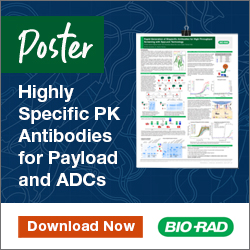VYNE Therapeutics Announces Development Program for Combination Topical Gel
VYNE Therapeutics Inc. recently announced development plans for FMX114, a fixed combination of pan-JAK inhibitor tofacitinib and sphingosine 1-phosphate receptor modulator fingolimod in a topical gel for the potential treatment of mild-to-moderate atopic dermatitis (AD). FMX114, VYNE’s first product candidate designed to target AD, will be evaluated in a Phase 2a proof of concept study expected to begin in 3Q 2021.
“We are excited to announce VYNE’s newest therapeutic candidate FMX114,” said David Domzalski, Chief Executive Officer of VYNE. “FMX114 is a non-steroidal topical treatment that is designed to address the multi-factorial nature of AD by offering a fixed combination multimodal solution to disease management. Advancement of FMX114 supports our strategic objective of building a diversified pipeline of products to address unmet needs of patients. We look forward to initiating the planned Phase 2a clinical trial in Q3 this year with anticipated top-line results by year end.”
FMX114 was evaluated in a well-known nonclinical model in which dorsal depilated BALB-C mice are dosed with 100µl topical dinitrochlorobenzene (DNCB) solution to induce a type 2 inflammatory response in the skin with AD-like pathology. There was a 32-day induction phase followed by 7 days of both DNCB and investigational drug concomitant treatment. Two doses of FMX114 (0.6% tofacitinib + 0.01% fingolimod and 0.3% tofacitinib + 0.02% fingolimod) were compared with tofacitinib monotherapy, fingolimod monotherapy, triamcinolone (steroid) 0.1%, and DNCB control.
Key findings from the study:
- Treatment with FMX114 0.6% tofacitinib + 0.01% fingolimod combination gel resulted in an 89% reduction in the modified atopic dermatitis index score (mADI) relative to the DNCB control group at day 7.
- Both FMX114 doses had comparable efficacy to triamcinolone 0.1% cream, a product widely used in the treatment of AD.
- Animal body weight was also evaluated to help determine tolerance to treatment. At day 7:
- In both FMX114 treatment groups, the animals experienced body weight gains comparable to DNCB negative control and vehicle-treated healthy control animal groups.
- Animals treated with triamcinolone 0.1% cream lost approximately 21% of their body weight compared to the animals treated with FMX114.
VYNE expects to complete IND-enabling nonclinical safety studies for FMX114 by mid-year 2021. The company intends to initiate a Phase 2a proof of concept clinical study in the third quarter of this year with top line results anticipated by the end of 2021.
FMX114 is a fixed combination of tofacitinib and fingolimod, formulated as a topical gel. As a pan-JAK inhibitor, tofacitinib inhibits phosphorylation and activation signal transducer and activator of transcription proteins (STATs) that act as primary initiators and propagators of Th2-mediated pro-inflammatory cytokine release in AD. Fingolimod, when converted to its phosphate form, inhibits activated inflammatory cells such as dendritic and langerhans cells from migrating between the lymph nodes and other tissues by binding to and modulating the activity of sphingosine 1-phosphate receptors (S1PR). Further, S1PR modulation with fingolimod imparts a direct effect on upregulating filaggrin and its byproduct natural moisturizing factor which are critical components in improving skin hydration and overall barrier function.
Atopic dermatitis (also known as atopic eczema) is a chronic, pruritic inflammatory skin condition that typically affects the face, neck, arms, and legs. Atopic dermatitis can start in early infancy and can persist throughout a patient’s lifetime. It can have a wide-ranging impact on quality of life and there is a substantial burden from direct and indirect costs. Approximately 22 million people are diagnosed and treated for atopic dermatitis in the United States, of whom approximately 19 million are estimated to have mild to moderate disease. The cause of atopic dermatitis is not known but is believed to be due to an interaction between susceptibility genes, the environment, defective skin barrier function, and immunologic responses.
VYNE’s mission is to improve the lives of patients by developing proprietary, innovative and differentiated therapies in dermatology and beyond. With expertise in topical medicine innovation as a springboard, VYNE is working to develop and commercialize a variety of solutions using its topical formulation capabilities, including its proprietary Molecule Stabilizing Technology (MST), and has received FDA approval for AMZEEQ (minocycline) topical foam, 4%, and for ZILXI (minocycline) topical foam, 1.5%. For more information about our approved products, please see AMZEEQ’s Full Prescribing Information at AMZEEQ.com and ZILXI’s Full Prescribing Information at ZILXI.com. For more information, visit www.vynetherapeutics.com.
Total Page Views: 2054










